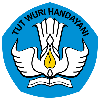Performance-Based Remuneration System Using Full-Time Equivalent and Simple Additive Weighting Methods
Keywords:
Beban Kerja, Full Time Equivalent, Remunerasi, Simple Additive Weighting, Workload, Full Time Equivalent, Remuneration, Simple Additive WeightingAbstract
The many activities of higher education institutions with complex business processes can, without realizing it, cause employees at higher education institutions to receive excessive workloads which can lead to decreased employee performance. One way that can encourage employee motivation and performance is by providing remuneration or rewards to people fairly, evenly and consistently with incentives commensurate with the work they have done. This research aims to use the Full Time Equivalent method to evaluate workload with the results of the load being the basis for remuneration calculations using Simple Additive Weighting. The results of this research show that workload and remuneration can be assessed objectively and help make calculations more effective and efficient. The black box testing results show that the system is in accordance with user needs, where 90% of the test data has passed the requirements test. So, users can evaluate workload and provide systematic remuneration so that they can maintain optimal performance using the system built.
Downloads
References
C. Aditya Wijaya, “Sistem Monitoring dan Evaluasi Pengelolaan Program Studi di Institusi Pendidikan Tinggi,” Indones. J. Inf. Syst., vol. 1, no. 1, pp. 13–24, 2018.
N. Luh and P. Sariani, “Pelatihan Dan Pendampingan Sistem Pemberian Remunerasi Untuk Meningkatkan Motivasi Kerja Karyawan PT. Kopie Humble Indonesia,” vol. 6, no. 2, pp. 265–271, 2022.
R. Irawati and D. A. Carollina, “Analisis Pengaruh Beban Kerja Terhadap Kinerja Karyawan Operator Pada Pt Giken Precision Indonesia,” Inovbiz J. Inov. Bisnis, vol. 5, no. 1, p. 51, 2017.
O. Sulastri, “Pengaruh Stres Kerja, Dan Beban Kerja, Terhadap Kinerja Karyawan,” Malaysian Palm Oil Counc., vol. 21, no. 1, pp. 1–9, 2020.
M. A. Rohman and R. M. Ichsan, “Pengaruh Beban Kerja Dan Stres Kerja Terhadap Kinerja Karyawan Pt Honda Daya Anugrah Mandiri Cabang Sukabumi,” J. Mhs. Manaj., vol. 2, no. 1, pp. 1–22, 2021.
A. B. Rahmi Maharani, “Pengaruh Beban Kerja Terhadap Stres Kerja Dan Kinerja Perawat Rawat Inap Dalam Rahmi,” Manage. Rev., vol. 3, no. 3, pp. 357–368, 2019.
S. Bima, “Pengaruh Remunerasi Dan Motivasi Kerja Terhadap Kinerja Karyawan (Studi Kasus Pada Kantor Pengawasan Dan Pelayanan Bea Dan Cukai Surakarta),” J. Manaj. Dayasaing, vol. 19, no. 2, pp. 109–118, 2017.
M. A. Nadhif and R. Fiati, “Penerapan Metode Simple Additive Weighting (SAW) Dalam Penentuan Bonus Karyawan,” J. Borneo Inform. dan Tek. Komput., vol. 2, no. 1, pp. 1–9, 2022.
S. Mulyati, “Penerapan Metode Simple Additive Weighting Untuk Penentuan Prioritas Pemasaran Kemasan Produk Bakso Sapi,” J. Inform., vol. 1, no. 1, pp. 33–37, 2016.
R. Rahim, “Kajian Pendekatan Simple Additive Weighting Untuk Sistem Pendukung Keputusan,” no. April, 2017.
A. B. Pace, T. S. Li, Y. Cheng, and T. Chou, “Perbandingan metode simple additive Weighting (SAW) dan Composite Performance Index (CPI) dalam penentuan remunerasi pegawai Perbandingan metode Simple Additive Weighting (SAW) dan Composite Performance Index (CPI) dalam penetapan remunerasi pegawai,” 2017.
W. Widodo, Adawiyah and A. Sukmawati, “Analisis Beban Kerja Sumber Daya Manusia dalam Aktivitas Produksi Komoditi Sayuran Selada (Studi Kasus: CV Spirit Wira Utama),” J. Manaj. dan Organ., vol. 4, no. 2, p. 128, 2016.
Mulyadi, “Rancang Bangun Sistem Informasi Analisis Beban Kerja Stikom Dinamika Bangsa Jambi,” J. Kebijak. Publik, vol. 13, no. 2, pp. 158–162, 2022.
A. Hendryani, “Rancang Bangun Sistem Informasi Remunerasi Jasa Pelayanan RSUD Kepahiang Bengkulu Menggunakan Metode FAST,” J. Sist. Inf. Bisnis, vol. 7, no. 1, p. 9, 2017.
S. Khoiriyah and R. M. Manikam, “Analisa dan Perancangan Sistem Perhitungan Insentif Marketing Trade Menggunakan Sistem Remunerasi,” EDUMATIC J. Pendidik. Inform., vol. 3, no. 2, pp. 99–108, 2019.
M. Hasan and D. Asmawanti, “Implementasi Remunerasi Dosen Badan Layanan Umum Pada Universitas Bengkulu,” J. Akunt., vol. 8, no. 3, pp. 165–174, 2019.
Y. Irawan, “Sistem Pendukung Keputusan Penentuan Bonus Karyawan Dengan Metode Simple Additif Weighting ( SAW ) Berbasis Web di PT. Mayatama,” vol. 2, no. 1, pp. 7–13, 2020.
N. Hidayah and A. Dewi, “Pemetaan Analisis Jabatan dan Penilaian Kinerja sebagai Dasar Pengembangan Sistem Remunerasi,” Berdikari J. Inov. dan Penerapan Ipteks, vol. 9, no. 1, pp. 77–86, 2021.
Y. Fitriani, “Implementasi Sistem Informasi Analisis Beban Kerja Pegawai,” J. Kebijak. Publik, vol. 13, no. 2, pp. 158–162, 2022.
N. Hudaningsih, “Analisis Kebutuhan Karyawan Dengan Menggunakan Metode Full Time Equivalent (Fte) Pada Departemen Produksi Pt. Borsya Cipta Communica,” J. Tambora, vol. 3, no. 2, pp. 98–106, 2019.
I. Dzikria and A. Rizal, “Rancang Bangun Sistem Pemesanan Mandiri Restoran Berbasis Progressive Web Apps,” J. Sist. Inf. dan Teknologi, vol. 5, no. 1, pp. 135-144, 2023.
I. Sommerville, "Software Engineering Tenth Edition,"Pearson. 2016.
Downloads
Published
How to Cite
Issue
Section
License
Copyright (c) 2024 Prosiding Seminar Nasional Teknoka

This work is licensed under a Creative Commons Attribution-NonCommercial-ShareAlike 4.0 International License.






 Supported by :
Supported by :



